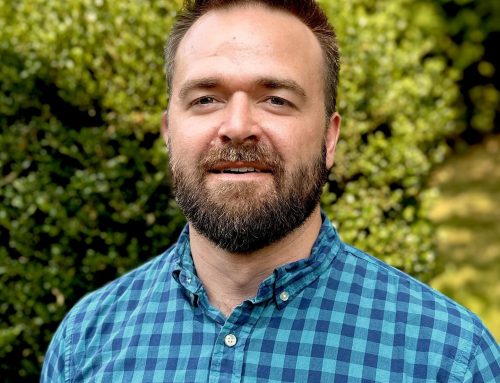
From Helping Survivors of Sexual Abuse & Assault
Child sexual abuse and molestation come with serious long-term effects. Child abuse is known to cause serious harm to a victim’s lifelong mental and emotional health. These consequences can create a domino effect, rippling outward to affect a victim’s relationships, physical health, educational success, earning ability, and quality of life.
The CDC estimates that 91% of childhood sexual abuse is perpetrated by someone the child knows. Children often do not report sexual abuse. Sometimes, this is out of fear or shame. However, not all child sexual abuse happens in the same way. When a child is molested, they may not realize until adulthood that they were the victim of sexual abuse.
The statutes of limitations for taking legal action over childhood sexual abuse are set on a state-by-state basis. In recent years, there has been a national movement toward re-examining and lengthening the statutes of limitations surrounding childhood sexual abuse. This has led to an increase in adult survivors coming forward decades after the abuse occurred. It’s never too for childhood sexual abuse victims to get help and pursue justice.
What counts as child sexual abuse?
Experiencing childhood sexual abuse or molestation is considered an adverse childhood experience (ACE). An ACE is a traumatizing event that can go on to negatively impact nearly every aspect of a person’s well-being.
Childhood sexual abuse is a complicated issue. It can happen in many different ways, and a victim’s reactions are highly individualized.
Child abuse is identified by the CDC as occurring when a child under 18 is involved in sexual activity that they don’t understand or cannot consent to. Legally, any child under the age of consent is a victim of sexual abuse when they are involved in any type of sexual activity.
Child sexual abuse can be physical or non-physical. Common examples include:
- Rape or attempted rape
- Sodomy or oral sex
- Insertion of fingers or objects
- Fondling or inappropriate touching
- Being asked to expose or watching another expose themself
- Being asked to masturbate or watching another masturbate
- Being photographed or recorded while undressed
- Being shown pornographic materials
Long-term psychological effects of sexual abuse
Child sexual abuse and molestation are linked to a range of serious mental health issues. Mental health issues stemming from childhood sexual abuse can begin shortly after the abuse occurs but may not appear until many years later.
Delayed mental health issues related to childhood sexual abuse may be due to the fact that in childhood, a victim might not fully understand what is happening.
Molestation, in particular, might be confusing to a child. When abuse is not painful for a victim, it may not be until adulthood that the victim fully realizes what occurred. Studies increasingly show that adult survivors often do not recall childhood sexual abuse until asked about it.
Whether a victim immediately recognizes the experience as abuse or does not realize it until adulthood, they are at risk of developing similar mental health concerns. Here are some of the most common mental health issues survivors of childhood sexual abuse face.
PTSD
Post-traumatic stress disorder (PTSD) is one of the most common psychological effects of childhood sexual abuse. Studies show that PTSD related to this type of abuse is more likely to manifest in adulthood. PSTD can manifest differently in different individuals. Common signs of PTSD include:
- Reliving the event through flashbacks or memories
- Avoidance of intimacy or sexual relationships
- Emotional effects like numbness, fear, or shame
- Loss of memory of the event
- Hyperarousal – easily startled, difficulty with sleep and concentration
PTSD is a complex psychological condition that can increase the likelihood of other issues like depression, anxiety, substance use, and suicide.
Depression
Studies routinely confirm that there is a significant correlation between childhood sexual abuse and adult depression. Depression can have an overwhelming impact on quality of life and can last for short periods or years. Depression manifests in many different ways. Common symptoms of depression include:
- Feelings of sadness or emptiness
- Anger or irritability
- Loss of interest in life activities
- Sleep disturbances, insomnia, or sleeping too much
- Lack of energy
- Loss of appetite and weight loss
- Overeating and weight gain
- Feelings of shame, worthlessness, and low self-esteem
- Cognitive difficulties – thinking, memory, recall
- Suicidal ideation or suicide attempts
Depression is a serious mental health condition. Left untreated, it can lead child sexual abuse victims to commit suicide.
Anxiety
Survivors of childhood sexual abuse are also at risk of developing anxiety disorders, both in childhood and in adulthood. Anxiety disorders can manifest in many different ways. One can broadly identify anxiety as feelings of apprehension that have serious effects on thoughts, emotions, actions, and quality of life.
Common signs of an anxiety disorder include:
- Feelings of panic or danger
- Nervousness or restlessness
- Increased heart rate or breathing
- Overwhelming worry
- Sleep and cognitive issues
Severe anxiety requires medical intervention. If a person with severe anxiety does not receive treatment, the condition can worsen.
For more information on long-term effects of sexual abuse, please visit: https://helpingsurvivors.org/long-term-effects-child-sexual-abuse-molestation/
Retrieved from https://helpingsurvivors.org/long-term-effects-child-sexual-abuse-molestation/




